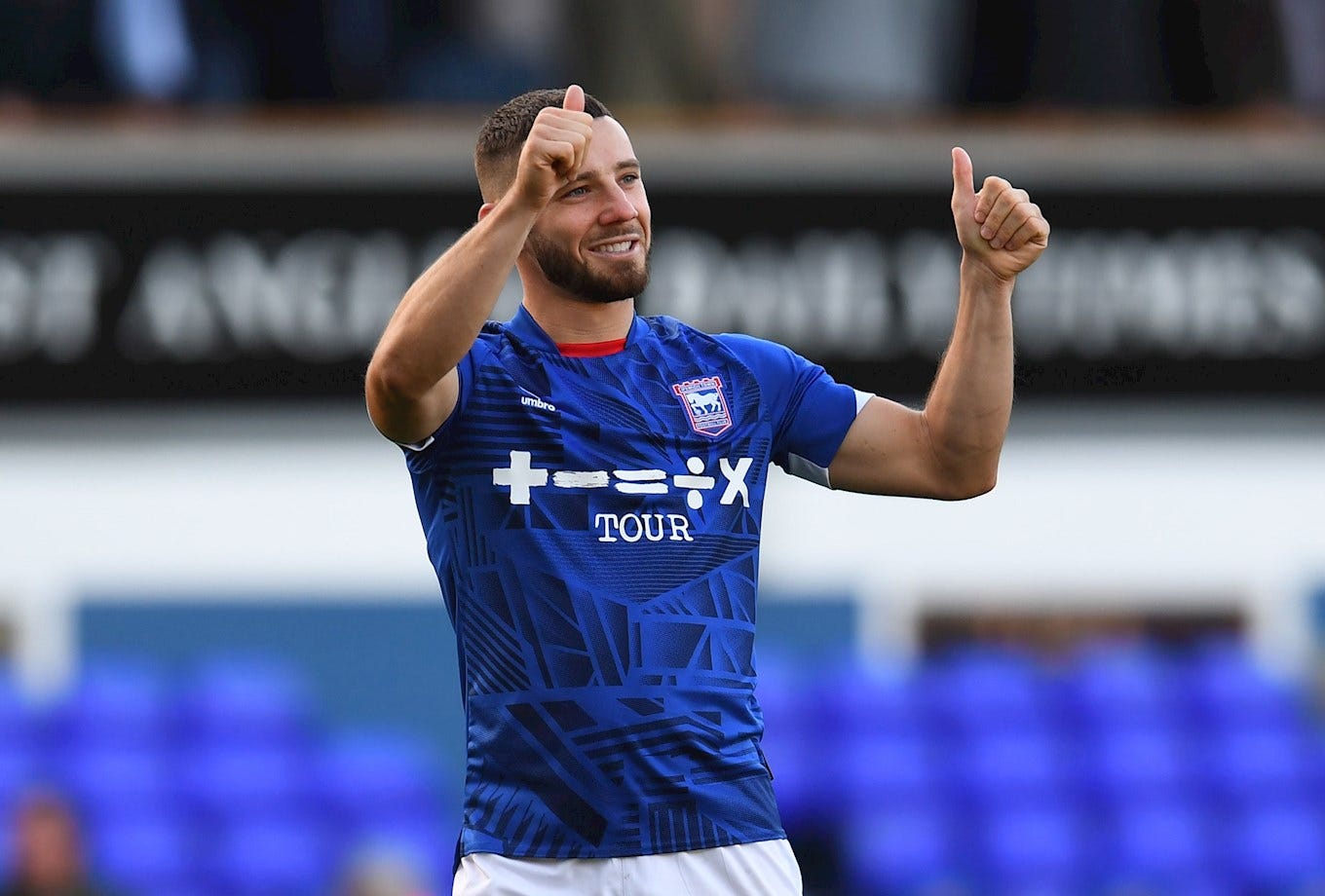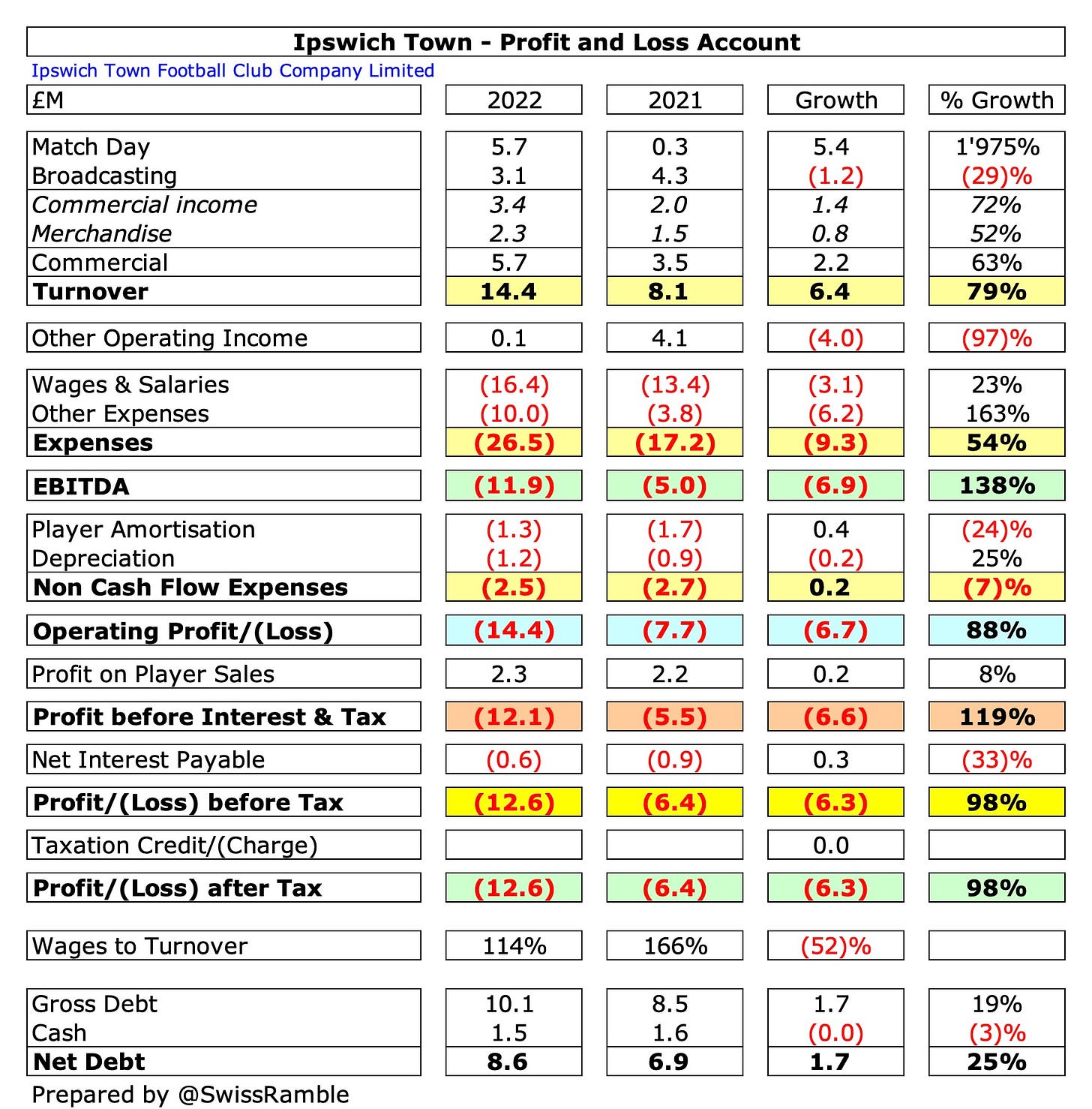Ipswich Town started the new season in the Championship where they had left off in League One last season, i.e. with a couple of wins. Although the Tractor Boys finished just behind champions Plymouth Argyle, this was still a great performance, as they secured promotion with 98 points, scoring over 100 goals and only losing four matches in the process, while playing in a much-admired, progressive style.
Much of the success on the pitch was down to their young manager Kieran McKenna, who took Town up in his first full season. Given that this was the Northern Irishman’s first senior managerial role, this was some achievement. Even though he had considerable experience at Manchester United and Tottenham, this was either at U18 level or first-team coach, so his appointment had to be considered a bit of a risk.
New Ownership
This was part of the transformation under the new owners, who purchased the club in April 2021 for a reported £40m. As a consequence, Ipswich Town are now majority owned by the wonderfully named Gamechanger 20 Limited, though the ultimate owner is a US investment firm, ORG, with a 90% stake.
The remaining shares are split: 5% for three businessmen (Brett Johnson, Berke Bakay and Mark Detmer), who previously invested in US football club Phoenix Rising: and 5% for Marcus Evans, Town’s former owner.
The new owners have certainly put their money where their mouths are to date, spending a lot on the squad and the club’s infrastructure. However, this has been part of a well though-out plan, as they have made some astute recruitment choices. As well as McKenna, they brought in former Bristol City chief executive, Mark Ashton, to lead operations off the pitch.
Ashton spoke of the solid nature of Ipswich’s new investors, “In a period where people are questioning where money is coming from into clubs, we are so fortunate to have a financial institution, a US pension fund, that backs the football club.”
For their part, the new owners believe that Ipswich Town represents an excellent investment opportunity, as ORG CEO Ed Schwartz explained, “Our view is that we've bought, at a lower value, an asset that has potential and history. Ipswich really was the perfect scenario for us.”
Marcus Evans
The current mood around Portman Road is significantly more positive than it has been for many years, as Ipswich Town had lost their way under the previous owner, Marcus Evans, who had bought the club back in December 2007.
Although Evans had run the club on a reasonably sustainable basis, it was effectively running to stand still, spending season after season in the Championship, before being relegated to England’s third tier in 2019.
However, in fairness, Evans did write-off of the vast majority of Town’s debt as part of the transaction to sell the club, which surely facilitated the process.
History
This was some come down, as this is a club rich in history. Ipswich Town were champions of England in 1962 under Alf Ramsey, then enjoyed a dazzling period in the late 1970s and early 1980s under Bobby Robson, when they twice finished runners-up in the old Division One. They also memorably won the FA Cup by defeating Arsenal in 1978 and also triumphed in the UEFA Cup in 1981 by beating AZ ’67. Furthermore, they were playing in the top flight as recently as 2002.
However, glorious as those times were, they are all in the past, so the club is now focused on looking ahead.
Whether Town have the finances needed to take the next step and return to the Premier League is debatable, but let’s review their accounts for some clues. We will analyse the most recent figures available, i.e. from the 2021/22 season, even though things have changed a fair bit since then.
Profit/(Loss) 2021/22
These financial results covered “a pleasing year for the club overall”, even though Town only finished 11th in 2021/22. This was the first full season under the new owners, so the loss increased as they invested funds in a bid to return to former glories. The season kicked-off with Paul Cook as manager, though he was replaced by McKenna in December 2021.
Town’s pre-tax loss basically doubled from £6.4m to £12.6m, even though revenue increased by £6.3m (79%) from £8.1m to £14.4m and profit from player sales slightly rose by £0.2m to £2.3m.
This was mainly due to operating expenses climbing by £9.1m (46%) from £19.8m to £28.9m, though also because other operating income dropped £4.0m to just £0.1m.
The return of fans to the stadium, after COVID restrictions were lifted, resulted in increases in both match day, up £5.4m from just £0.3m to £5.7m, and commercial, which rose £2.2m (63%) from £3.5m to £5.7m. On the other hand, broadcasting fell £1.2m (29%) from £4.3m to £3.1m.
However, Town’s revenue growth was eclipsed by higher costs. Wages increased £3.0m (23%) from £13.4m to £16.4m, while other expenses shot up £6.2m (163%) from £3.8m to £10.0m, partly due to the higher cost of staging games with fans. Player amortisation fell £0.4m (24%) from £1.7m to £1.3m, but depreciation rose £0.2m (25%) to £1.2m.
As the new owners explained, “Significant investment has arisen across all aspects of operations, including playing staff, non-playing staff, property and infrastructure. As a result, the cost base of the operation expanded significantly.”
Keep reading with a 7-day free trial
Subscribe to The Swiss Ramble to keep reading this post and get 7 days of free access to the full post archives.




